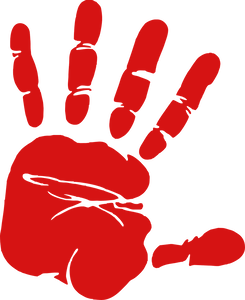|
Oscar Wilde once espoused that, “Imitation is the sincerest form of flattery that mediocrity can pay to greatness.” That may be true, but that does not make it any easier to see someone outright stealing your hard work and passing it off as their own. Academics are all too familiar with this practice. It happens to them frequently. They spend hours researching topics and writing original theses, only to have an unscrupulous person swoop in and take advantage of their efforts without so much as a well-earned credit. You know who else gets their stuff lifted a lot online? Copywriters. I do not mean someone borrowed our ideas and reworked them into their own brand voice (although that is kind of annoying, too). I am talking about full-on, outright plagiarism. The word-for-word, not even embarrassed they were too lazy (and unimaginative) to come up with their own stuff, kind of plagiarism. And man, that burns. What is plagiarism? It is difficult to believe that people do not grasp what plagiarism means. Yet, I find myself explaining it to some of the most educated folks sometimes. There is no such thing as borrowing something you have seen online. You must – let me say that again for the people in the back – you must give credit to other people’s hard work. Taking someone else’s ideas and passing them off as your own is plagiarism. At least that is how my good friend, the Oxford English Dictionary, puts it. Plagiarism is a little more complex than that, so let me break it down even further so there is no chance of misunderstanding. There are several types of plagiarism. The two that most apply to my blog today are direct plagiarism and mosaic plagiarism. Direct plagiarism is self-explanatory. Someone has copied word-for-word information from another source without giving attribution. This kind of plagiarism can involve a few sentences, a paragraph, or entire web pages of content. I once had someone take a piece of my original poetry and claim it as their own. Word. For. Word. To say it was infuriating is an understatement. Some professionals have had entire websites full of copy directly plagiarized by competitors because their content ranks well in search results, and the rival wants to achieve the same outcome. It is difficult to fathom people do not know what they are doing is wrong. Yet some feign ignorance when caught red-handed in the act. Mosaic plagiarism is the term for using direct phrases from someone else’s published work and failing to use quotations and properly attribute the information. Another way mosaic plagiarism occurs is by using the exact wording of an original author and substituting their words for synonyms. In the writing business, this is known as “patchwriting.” Content farms are famous for this kind of plagiarism. I am sad to say that some basement-bargain copywriting services are guilty of this as well. They hire writers and pay them quite poorly to regurgitate copy on a variety of topics for clients. It is just one more reason why if you need quality online copy, you should consider working with a reputable copywriter. You risk your reputation when you pay for cheap, subpar work that likely is guilty of mosaic plagiarism. Does copyright law apply to online content? You bet your bottom dollar it does. Whether it is an image, a video, a logo, or a blog post you crafted, once you post it online, it becomes a “work” that falls under the protection of U.S. copyright law. It does not matter where you post it online. Social media accounts and personal or business websites are all protected by copyright laws. Once you produce content and post it, it belongs to you and cannot be used or reproduced without your consent or attribution to its origins. Yet, that does not stop people from stealing online content ad nauseam. That brings me to my next tidbit of helpful advice on what to do when you catch someone helping themselves to your hard work. Stopping plagiarism in its tracks
Now that you know U.S. copyright law covers your online work, what do you do when someone has borrowed your words or other creations without your permission? The first step is to send a letter on official letterhead from your favorite lawyer. If you want to be scary and effective, take the time to have your business attorney – or one familiar with copyright laws – draft it for you. Yes, it may cost you some moolah to do it, but it is well worth the expense. The letter should clearly state the content in question and advise the offender they must remove it, or you will consider your legal options. Most times, this is enough to scare the pants off plagiarizers. Other times, they just ignore you. When that happens, you must follow through on your threat or risk further victimization. Your attorney can discuss how to proceed with a potential lawsuit for copyright infringement. Another option you can take (if you want to avoid the expense of a lawsuit) is to report the offender to Google. If the content they have swiped is from your website, reporting them to Google can get them banned from search results. Under the Digital Millennium Copyright Act, you can file a complaint and request Google intervenes to remove or penalize a website using your stolen copy. Google’s data analytics capabilities can help prove when copy was placed on your site and when it appeared on the suspected plagiarizer’s website. Here is one more remedy you can seek that sometimes earns a major payoff. Contact the offender’s website hosting service. ICANN|LOOKUP is a great resource for identifying which website hosting service a website uses. Simply enter the website URL where your content is duplicated, and the registration data tool produces information on the registrant. Reach out to the domain host once you have that information and ask them to remove the duplicate content. Sometimes they will go as far as to take down the entire site. Will plagiarism hurt my SEO ranking? This is a common concern among my clients who have discovered their digital content was stolen. Thankfully, someone else’s sticky fingers do not hurt your SEO ranking. Remember when I said earlier that Google can tell when your content was drafted and posted? That handy skill is better for more than just going after plagiarizers. When Google’s web crawlers notice two different sites with the same wording, it prompts further evaluation. Since Google can see which site launched first, the offender is automatically penalized for copying your content. Your website always will rank higher for the keywords. Sometimes Google goes the extra mile in its punishment and refuses to rank copycat websites at all. A final word on digital content thievery Living in the digital age has its advantages. Information at our fingertips with a few keystrokes is one of them. That advantage also is a disadvantage because it makes it a lot easier for people to lift your work and pass it off as their own. Unfortunately, it is difficult to prevent someone from stealing your stuff. The best you can do is keep tabs on your copy and take swift action against anyone who dares “borrow” it without your express permission. Need help drafting original copy to keep your brand an authority in your niche? Contact us today to schedule a free consultation. New clients enjoy a 25 percent discount on their first order with The Write Reflection.
0 Comments
|
Categories
All
Archives
April 2024
|


